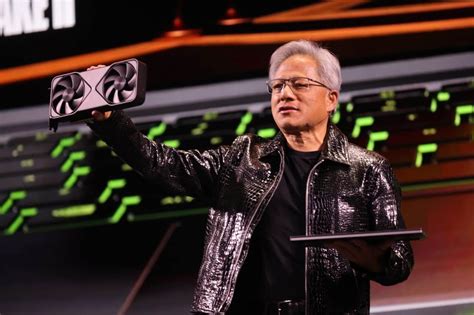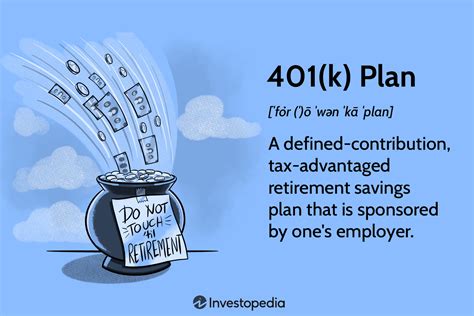
Artificial intelligence will impact every job, Nvidia CEO Jensen Huang predicts, but his message centers more on augmentation than outright replacement. He believes AI will enhance human capabilities across all professions.
Nvidia CEO Jensen Huang has ignited a fresh wave of debate about the future of work, asserting that artificial intelligence will fundamentally alter every job. Speaking at the World Government Summit in Dubai, Huang tempered fears of outright job displacement with a vision of AI serving as a powerful tool to augment human capabilities. “AI will be able to do any job,” Huang stated, clarifying his point by adding, “It is up to you to demonstrate the value of the work that you do.” His comments suggest a future where AI assists professionals across all fields, rather than completely replacing them.
Huang emphasized that the focus should be on leveraging AI to achieve superior outcomes. “Therefore, while it is true that AI can do any job, the key is to utilize AI to enable you to do your job far better,” he elaborated. This perspective aligns with a growing consensus that AI’s transformative power lies in its ability to automate routine tasks, analyze vast datasets, and provide insights that enhance human decision-making.
The core of Huang’s message is not about replacement but about augmentation. He envisions AI as a tool that empowers individuals to perform their jobs more efficiently and effectively. By automating repetitive tasks and providing data-driven insights, AI can free up human workers to focus on more strategic, creative, and complex aspects of their roles.
Huang’s perspective is significant given Nvidia’s pivotal role in the AI revolution. As the leading provider of graphics processing units (GPUs) that power AI systems, Nvidia is at the forefront of this technological transformation. His insights into the future of work carry considerable weight, shaping the dialogue and influencing the strategies of businesses and governments worldwide.
The notion that AI will impact every job is not new. Experts across various industries have long predicted that AI will transform the labor market. However, the extent and nature of this transformation remain subjects of intense debate. While some fear mass unemployment due to automation, others argue that AI will create new jobs and opportunities, leading to a net positive impact on employment.
Huang’s emphasis on augmentation aligns with a more optimistic view of AI’s impact on the labor market. By positioning AI as a tool to enhance human capabilities, he suggests that workers can adapt to the changing landscape by learning to work alongside AI systems. This requires a shift in focus from simply performing tasks to managing and leveraging AI to achieve desired outcomes.
The transition to an AI-augmented workforce will require significant investments in education and training. Workers will need to develop new skills to effectively use AI tools and collaborate with AI systems. This includes technical skills such as data analysis and machine learning, as well as soft skills such as critical thinking, problem-solving, and communication.
Governments and businesses have a crucial role to play in facilitating this transition. They must invest in education and training programs that equip workers with the skills they need to thrive in the AI-driven economy. They must also create supportive policies and regulations that promote responsible AI development and deployment.
The debate surrounding AI’s impact on the labor market is complex and multifaceted. While there are legitimate concerns about job displacement, there are also significant opportunities for AI to enhance productivity, improve working conditions, and create new jobs. The key to navigating this transformation is to focus on augmentation, education, and responsible AI development.
Huang’s remarks come at a time when AI is rapidly advancing and its applications are expanding across various industries. From healthcare to finance to manufacturing, AI is transforming the way businesses operate and the way people work. As AI becomes more sophisticated and more widely adopted, its impact on the labor market will only intensify.
To fully understand Huang’s perspective, it’s essential to consider the broader context of Nvidia’s role in the AI ecosystem. The company’s GPUs are the workhorses of modern AI systems, enabling the training and deployment of complex machine learning models. Nvidia has also invested heavily in software and tools that make it easier for developers to build and deploy AI applications.
Huang’s vision for the future of work is closely tied to Nvidia’s mission to democratize AI and make it accessible to everyone. By providing the hardware and software tools that power AI, Nvidia aims to empower individuals and organizations to leverage AI to solve complex problems and create new opportunities.
However, the widespread adoption of AI also raises important ethical and societal concerns. These include issues such as bias in AI algorithms, the potential for AI to be used for malicious purposes, and the impact of AI on privacy and security. Addressing these concerns is crucial to ensuring that AI is developed and deployed responsibly and ethically.
Governments and organizations are working to develop ethical guidelines and regulations for AI. These guidelines aim to ensure that AI systems are fair, transparent, and accountable. They also seek to protect individuals’ rights and privacy in the age of AI.
The future of work in the age of AI is uncertain, but Huang’s message of augmentation provides a valuable framework for navigating this transformation. By focusing on leveraging AI to enhance human capabilities, we can create a future where AI empowers workers and creates new opportunities for everyone.
The impact of AI is already being felt across various sectors. In healthcare, AI is being used to diagnose diseases, develop new treatments, and personalize patient care. In finance, AI is being used to detect fraud, manage risk, and automate trading. In manufacturing, AI is being used to optimize production processes, improve quality control, and enhance worker safety.
As AI continues to evolve, its applications will only expand further. This will create new opportunities for innovation and growth, but it will also require careful planning and adaptation. By embracing AI and investing in education and training, we can prepare ourselves for the future of work and ensure that everyone benefits from the AI revolution.
Moreover, Huang’s perspective emphasizes the need for individuals to actively demonstrate the value of their work. In a world increasingly powered by AI, the ability to differentiate oneself and showcase unique skills and contributions becomes paramount. This involves not only technical expertise but also soft skills such as creativity, critical thinking, and emotional intelligence. These attributes are difficult for AI to replicate and will be essential for success in the AI-augmented workforce.
The shift toward an AI-augmented workforce also necessitates a reevaluation of traditional education and training models. Instead of focusing solely on rote memorization and task-specific skills, educational institutions must prioritize the development of critical thinking, problem-solving, and adaptability. Students need to learn how to learn and how to apply their knowledge in novel and dynamic situations.
Furthermore, lifelong learning will become increasingly important in the age of AI. As AI technologies continue to evolve, workers will need to continually update their skills and knowledge to remain relevant and competitive. This requires access to ongoing training and development opportunities, as well as a willingness to embrace new technologies and adapt to changing job requirements.
Huang’s remarks also underscore the importance of collaboration between humans and AI. Rather than viewing AI as a replacement for human workers, it is essential to recognize its potential as a collaborative partner. By working together, humans and AI can achieve outcomes that neither could achieve alone. This requires a shift in mindset from viewing AI as a threat to embracing it as a tool for empowerment.
The integration of AI into the workplace will also require careful consideration of ethical and social implications. It is essential to ensure that AI systems are fair, transparent, and accountable. This requires addressing issues such as bias in AI algorithms, the potential for AI to be used for discriminatory purposes, and the impact of AI on privacy and security.
Governments and organizations must also address the potential for job displacement caused by AI automation. This requires implementing policies and programs that support workers who are displaced by AI, such as retraining initiatives and social safety nets. It also requires fostering a culture of innovation and entrepreneurship that creates new jobs and opportunities.
The future of work in the age of AI is not predetermined. It is up to us to shape the future we want to see. By embracing AI responsibly and ethically, investing in education and training, and fostering collaboration between humans and AI, we can create a future where AI empowers workers, enhances productivity, and creates new opportunities for everyone.
Huang’s comments have sparked considerable discussion across social media and online forums. Many users have expressed concerns about the potential for job losses due to AI automation, while others have welcomed the prospect of AI augmenting human capabilities and improving productivity.
Some commentators have criticized Huang’s remarks as overly optimistic, arguing that the potential for job displacement is greater than he acknowledges. They point to studies that predict significant job losses due to AI automation in the coming years.
Other commentators have praised Huang’s vision of AI as a tool for empowerment, arguing that it aligns with a more realistic and nuanced understanding of AI’s impact on the labor market. They emphasize the importance of investing in education and training to prepare workers for the AI-driven economy.
The debate surrounding AI’s impact on the labor market is likely to continue for many years to come. As AI technologies continue to evolve and become more widely adopted, the stakes will only become higher. It is essential to engage in thoughtful and informed discussions about the future of work in the age of AI to ensure that the benefits of this technology are shared by all.
In addition to the impact on individual jobs, AI is also expected to transform entire industries. For example, in the transportation industry, self-driving cars and trucks could revolutionize the way goods and people are moved. In the healthcare industry, AI could lead to more accurate diagnoses, personalized treatments, and improved patient outcomes. In the manufacturing industry, AI could enable more efficient production processes, reduced waste, and improved product quality.
The transformation of industries by AI will require significant investments in infrastructure, technology, and workforce development. Governments and businesses must work together to create an environment that fosters innovation and supports the adoption of AI technologies.
Moreover, the widespread adoption of AI will require a shift in mindset and culture. Organizations must be willing to embrace new technologies and experiment with new ways of working. Workers must be willing to learn new skills and adapt to changing job requirements.
The transition to an AI-driven economy will not be easy, but it has the potential to create a more prosperous and equitable future for all. By embracing AI responsibly and ethically, investing in education and training, and fostering collaboration between humans and AI, we can unlock the full potential of this transformative technology.
Huang’s statements at the World Government Summit underscore the urgency of preparing for the AI-driven future. As AI continues to evolve and become more integrated into our lives, it is essential to address the challenges and opportunities it presents. By focusing on augmentation, education, and responsible AI development, we can ensure that AI empowers workers, enhances productivity, and creates new opportunities for everyone.
The conversation around AI and its impact on jobs must also address the role of government and policy. Governments have a responsibility to create a regulatory environment that encourages innovation while protecting workers and ensuring fair labor practices. This includes investing in education and training programs, providing support for workers who are displaced by AI, and promoting ethical AI development and deployment.
Policies that promote lifelong learning and skills development are crucial for ensuring that workers can adapt to the changing demands of the AI-driven economy. This includes providing access to affordable education and training programs, as well as creating incentives for workers to upgrade their skills.
Governments must also address the potential for increased inequality in the age of AI. As AI automates routine tasks, it could lead to a concentration of wealth and power in the hands of a few. Policies that promote income equality, such as progressive taxation and a strong social safety net, are essential for ensuring that everyone benefits from the AI revolution.
Moreover, international cooperation is crucial for addressing the global challenges and opportunities presented by AI. Governments must work together to develop common standards and regulations for AI, as well as to share best practices and promote responsible AI development and deployment.
The future of work in the age of AI is a global challenge that requires a coordinated and collaborative response. By working together, governments, businesses, and individuals can ensure that AI empowers workers, enhances productivity, and creates new opportunities for everyone.
Nvidia’s vision extends beyond just hardware and software. The company is also heavily involved in research and development, exploring new ways to use AI to solve complex problems in a variety of fields. This includes areas such as autonomous vehicles, robotics, and drug discovery.
Nvidia’s commitment to innovation is evident in its investments in AI research and development. The company has a team of world-class researchers who are working on cutting-edge AI technologies. Nvidia also collaborates with leading universities and research institutions to advance the state of the art in AI.
The company’s efforts are not limited to just technological advancements. Nvidia also recognizes the importance of addressing the ethical and societal implications of AI. The company is actively involved in discussions about responsible AI development and deployment.
Huang’s leadership at Nvidia has been instrumental in shaping the company’s vision and strategy. His insights into the future of AI have helped guide Nvidia’s investments in research, development, and partnerships. He is a strong advocate for the responsible and ethical development of AI, and his leadership has helped to ensure that Nvidia remains at the forefront of the AI revolution.
Ultimately, the future of work in the age of AI depends on our ability to adapt and innovate. By embracing new technologies, investing in education and training, and fostering collaboration between humans and AI, we can create a future where AI empowers workers, enhances productivity, and creates new opportunities for everyone. The key is to approach the challenges and opportunities of AI with a proactive and forward-thinking mindset. We must not fear the technology but rather embrace it as a tool for progress and innovation.
In conclusion, while the prospect of AI impacting every job might seem daunting, Jensen Huang’s message emphasizes augmentation over replacement. By focusing on how AI can enhance human capabilities and create new opportunities, we can navigate the changing landscape of work and ensure a more prosperous and equitable future for all. The onus is on individuals, businesses, and governments to proactively adapt, invest in education, and foster a culture of collaboration in the age of AI. The transformation is underway, and the future of work will be defined by how effectively we leverage AI to augment human potential.
Frequently Asked Questions (FAQ):
1. What is Jensen Huang’s main point regarding AI and jobs?
Jensen Huang, the CEO of Nvidia, believes that artificial intelligence (AI) will impact every job, but his primary message is about AI augmenting human capabilities rather than completely replacing workers. He emphasizes that AI should be used as a tool to enhance performance and achieve better outcomes across all professions.
2. How does Huang suggest individuals should respond to the increasing role of AI in the workplace?
Huang advises individuals to focus on demonstrating the value of their work by leveraging AI to perform their jobs more efficiently and effectively. He highlights the importance of adapting to the changing landscape by learning to work alongside AI systems and developing skills that complement AI capabilities.
3. What role does Nvidia play in the AI revolution, according to the article?
Nvidia is a pivotal player in the AI revolution as the leading provider of graphics processing units (GPUs) that power AI systems. The company’s technology enables the training and deployment of complex machine learning models, and Nvidia has invested heavily in software and tools to facilitate AI development and deployment.
4. What are some ethical and societal concerns associated with the widespread adoption of AI, as mentioned in the article?
The article highlights ethical and societal concerns such as bias in AI algorithms, the potential for AI to be used for malicious purposes, and the impact of AI on privacy and security. It emphasizes the importance of addressing these concerns to ensure that AI is developed and deployed responsibly and ethically.
5. What are some of the key strategies for navigating the future of work in the age of AI, according to the article?
The article suggests several key strategies, including focusing on augmentation (using AI to enhance human capabilities), investing in education and training to equip workers with the skills needed to thrive in the AI-driven economy, fostering collaboration between humans and AI, and developing supportive policies and regulations that promote responsible AI development and deployment. Furthermore, it emphasizes the importance of lifelong learning, ethical considerations, and government support for workers displaced by automation.









